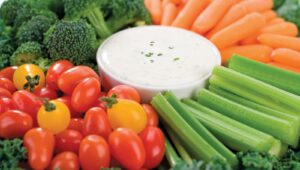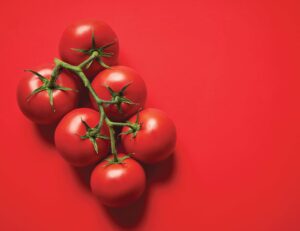If you are reading this column, I assume that you would like to eat in a healthier way. Perhaps you would like to lose some weight. I was talking to someone recently who said she lost over 20 pounds four years ago. When I asked her why, she said that she turned 55 and did not like how she looked. Now four years later she has gained all of that weight back and then some. She is not unique. Studies show that between one-third and two-thirds of people who diet regain most of the lost weight within five years, mostly because they did not make a permanent change to their eating habits.
There are other people, including myself, who improve eating habits for reasons other than weight loss. When I found out I was sensitive to gluten over eleven years ago, I gladly gave it up in order to feel better. But I did not stop there. I began investigating food and nutrition and found out about the power of foods to hurt or to heal. So I began to eat more of the foods that are healing and to teach others about healthy foods.
But it is hard.
Everything in our society is set up for us to fail at healthy eating. Fast, easy, unhealthy food is everywhere. We are encouraged to be busy and cooking takes time. Most of the “healthy” food, such as Lean Cuisine or Weight Watchers frozen meals, really isn’t. With all of this negative pressure, how can you change your habits permanently?
Find Your “Bigger Why”
What are your reasons for wanting to change? The reasons almost always need to be bigger and more important than looking good or fitting into a smaller size dress. Try to identify your driving purpose and write it down in a concise statement. A strong purpose will help you stick to the diet, exercise, and lifestyle changes when it is hard to do so.
As a Christian, the Westminster Shorter Catechism gives me a summary of my major life purpose, which is “to glorify God and enjoy Him forever.” The body God has given me houses the Holy Spirit and is the temple through which I worship and glorify God. If I am knowingly doing things that are unhealthy for my body, then it is as if I am purposely dishonoring God. I want to be able to live a long, productive life and continue to be of service to my family and community.
Find a Positive Role Model
My grandmother, Mary Usher, gave me the model of how I want to live my life. “Nano” was one of ten children born on a farm near Durham, North Carolina. She lived a productive and happy life until she was 96. At the time of her death she did not have to take any regular prescription medications. She had very clear mental functioning, and her only physical problem was macular degeneration, which began in her late 80s. She spent her life eating healthy whole foods and moving regularly. Nano especially enjoyed working in her garden growing roses and tomatoes. She served her family, church, and community throughout her life and was driving until the age of 89.
Genetic Propensities and Health
When a baby is born, people try to determine who the baby looks like. One person will see similarities to the mother and her family, and others will see the father and his family. We also inherit genetic tendencies for health from our families. Nine of the ten children in my grandmother’s generation lived into their 70s or beyond. At one point my grandmother and her four closest siblings were all in their 80s or 90s. My father lived until he was 89, and my mother is currently 91.
I have a genetic propensity for long life.
I also have some other genetic propensities for poor health. My paternal grandfather had diabetes, as did both my father and mother. I had gestational diabetes when I was pregnant with my son, so I know that I need to be careful about my blood sugar as I get older.
The good news is that our genes are not our destiny.
I do not have to have the negative health consequences that both my mother and father faced. But I do have to be proactive about my health. I have a positive role model for healthy lifestyle practices from my grandmother.
The majority of people living 100 years ago ate mostly organic whole foods. They were active physically and, with no TV or other media, they were also more active mentally than today’s generation. When we commit to eating a whole foods diet, exercising on a daily basis, and remaining mentally active, we can mitigate any negative genetic tendencies.
Identify Your “Bigger Why” and Your Role Models
To reach your maximum health potential, I encourage you to find your “bigger why”. These reasons can help you keep going when the road is hard. In addition to having compelling reasons, it is also helpful to have role models for our actions. These may be members of your family, but they do not have to be. Anyone with positive characteristics can be chosen as a role model. Just keep in mind your genetic tendencies, because if you have the body frame of a muscular athlete, you will be destined for failure if your role model looks like Twiggy!
























